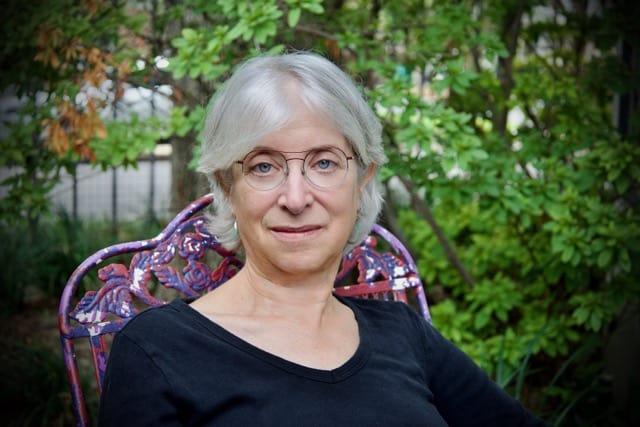
by Betsy Fasbinder | Apr 3, 2024 | Podcasts
When Leah Lax was asked to write a libretto for an opera intended to celebrate local immigrants, she began by spending a year listening to the stories of upheaval, migration, and arrival, told to her in confidence by people from around the globe. She felt she had discovered the song of America, found its great beating heart. But Leah also discovered troubling truths about America, through the eyes of immigrants, and in so doing was inspired to uncover the lost history of her own Jewish family. Through this interwoven experience of their story and hers, Leah found not only a larger context for the story of immigrants, but a new way of looking at how her own identity, rather than as a member of a small “minority”, but as a part of a very large majority who are here in this country because either they or their parents immigrated from another country. Nearly two decades after Leah had those conversations, long after the opera she wrote had left the stage, she captured those stories into this “libretto” of a story, her extraordinary new book, Not From Here: The Song of America.
Leah was a guest on The Morning Glory Project after her deeply stirring memoir, Uncovered: How I Left Hasidic Life and Finally Came Home, which was the first gay memoir ever to come out of the Jewish ultra-Orthodox world. Leah’s dual career as an author and as a librettist has brought her many well-deserved accolades. When she’s not writing, you can find her playing cello or kayaking around the world with her wife.
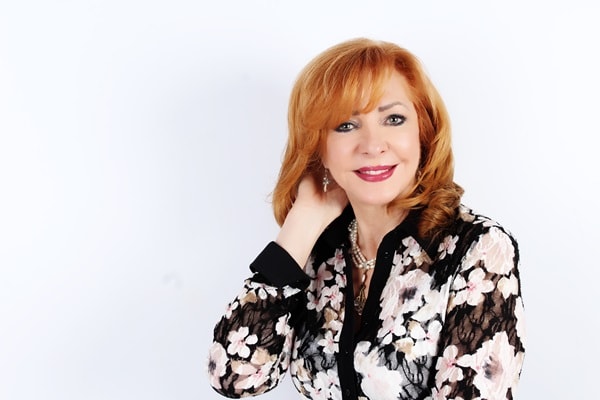
by Betsy Fasbinder | Feb 7, 2024 | Podcasts
Kathryn Abdul-Baki was born in Washington, DC, to an Arab father and an American mother. In addition to her bi-cultural immediate family, she had a globetrotting childhood, growing up with dramatic changes in community and culture as her father’s work brought them to Iran, Kuwait, Beirut, and Jerusalem.
The geographical and cultural changes were huge, but dwarfed in comparison to the tragic losses her family would sustain. When she was 7, Kathryn’s brother was born and would be struggle with a heart defect that required extensive treatment. During this time, her mother was diagnosed with cancer. Her brother died at the age of 18-month. Her mother at age 32, and Kathryn’s whole world changed.
Kathryn, despite a happy marriage and beloved children of her own, would find herself in the throes of depression as she came to her own thirtieth birthday. With what were then inexplicable feelings of abandonment, she’d make an attempt to take her own life. Behind the scrim of her own life, there would always be the image of the mother she lost before she ever got to really know her.
It was by reconnecting to the joyful aspects of her early life that Kathryn was able to heal, and specifically through dancing that she’d reconnect to this joy. Her memoir, Dancing Into the Light gives readers a unique glimpse into her story, into Arab culture, and into the psyche of a young Arab woman.
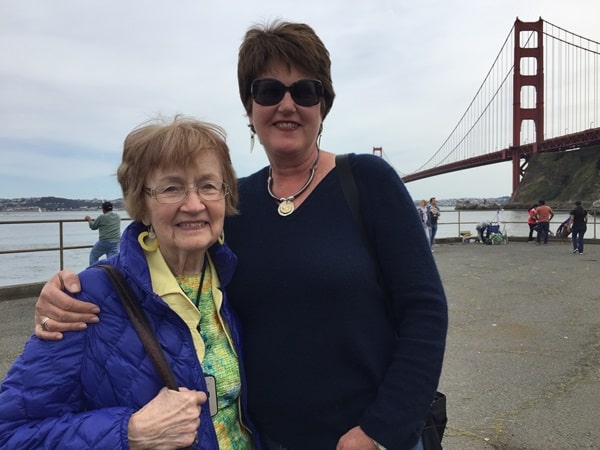
by Betsy Fasbinder | Jan 10, 2024 | Podcasts
Donna Stoneham and her mother found a special closeness in the end of Mary Ruth’s life. Theirs had been a relationship fraught with challenge throughout most of their shared lifetime but in her mother’s final years, the two found healing and deep connection. When Mary Ruth passed, Donna was launched into a new kind of transformational grief journey in which the conversation with her mother did not end with her passing at age 88. Catch Me When I Fall is a moving collection of poems and letters through which Donna keeps her heart open to the mystery and power of transcendent, eternal love that lives on beyond the human lifetime.
Donna’s lifelong experience as a poet accustomed to seeking meaning, her professional experience as an executive coach, and her history as a hospice chaplain inform her rich and deep exploration of connection with her mom as a part of not only grieving death, but embracing life. A balm for a grieving heart, Catch Me When I Fall is an inspiration for anyone who has lost someone they love. Part love song, part grief map, this collection offers another way to look at loss and a thousand ways to embrace life.
Donna is also the author of The Thrivers Edge: Seven Keys to Transform the Way You Live, Love, and Lead.
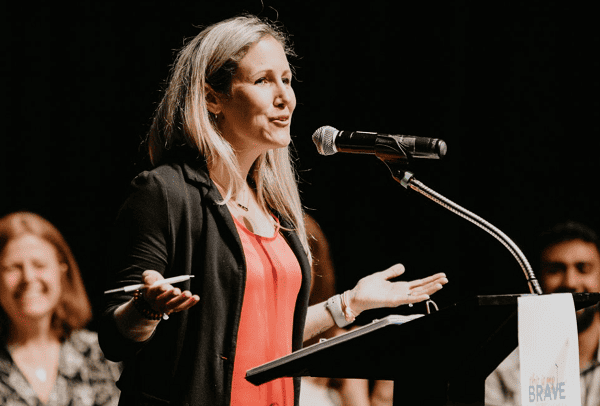
by Betsy Fasbinder | Dec 6, 2023 | Podcasts
Jennifer Marshall experienced four psychiatric hospitalizations within five years—two before any diagnosis was reached, and two more because she was trying to protect her son during her own postpartum psychosis and later after going off medication to protect her unborn daughter. All of those hospitalizations were because she was unmedicated at the time. Then, seven years later, after seven and a half years of stability, she suffered a manic episode after the death of her friend and partner who had helped her launch her non-profit, Anne Marie Ames. Living in recovery with bi-polar disorder is a daily struggle, but Jennifer is determined to live successfully despite mental illness. With good health practices, good medical care, and the support of friends and loved ones Jennifer continues her campaign to de-stigmatize mental illness and to celebrate the brave people who put their names and faces to it. Jennifer founded “This is My Brave”, an organization to celebrate the stories of those who struggle with or have relationships with those who struggle with all forms of mental illness.
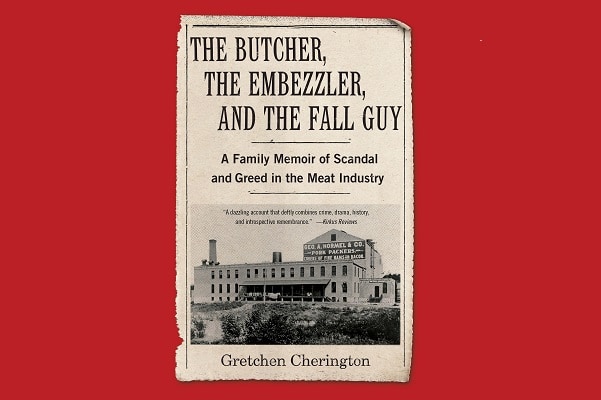
by Betsy Fasbinder | Nov 1, 2023 | Extra Blooms, Podcasts
As a follow up to her memoir Poetic License which came out in 2020, Gretchen Cherington dug deeper into family myth and lore, resulting in her new memoir The Butcher, the Embezzler, and the Fall Guy—A Family Memoir of Scandal and Greed in the Meat Industry.
In the early 1900s, Gretchen’s paternal grandfather was recruited by George A. Hormel to help him build what is now the multi-billion dollar food conglomerate Hormel Foods. As a child, Gretchen listened to riveting stories about these two men from her father. Third in the trio was the company’s comptroller, Ransome J. Thomson, who, over a decade, embezzled $1.2 Million from the Hormel company and nearly brought it to its knees. Rumors suggested Gretchen’s grandfather was “in cahoots” with the embezzler. But was he? Gretchen sent out to investigate this question.
Research led Gretchen to business documents, letters, and historical records that helped her find a few of the missing pieces of the picture that is her family’s history puzzle. Kirkus calls this new book “A dazzling account that deftly combines crime, drama, history, and introspective remembrance…a mesmerizing story filled with drama, suspense, and told with remarkable emotional insights.”




